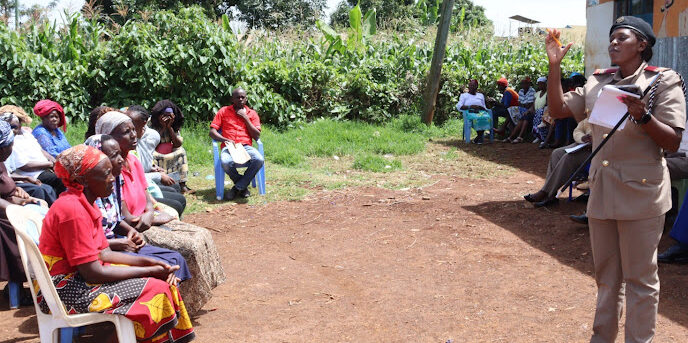Six bars in Ndumberi, Kiambu County, have been indefinitely closed following sustained pressure from women fed up with their husbands’ excessive drinking. The women voiced concerns about their men neglecting work, family duties, and even marital intimacy due to their addiction.
Frustrations reached a boiling point when residents threatened to burn down the bars. The area security administration intervened, holding a baraza (public meeting) that ultimately led to the bars’ closure.
Lucy Njeri, a resident and victim of her family’s alcoholism, strongly supported the closures. “My family is suffering because of alcohol. They sit idle all day, wasting their income and ignoring their responsibilities,” she lamented. Njeri also expressed concern about the village’s bachelor problem, attributing it to men prioritizing drinking over marriage and family.
Christine Thugi, another resident, shared a painful personal story. Her husband was severely beaten at a local bar and is now bedridden, unable to care for their family. Thugi also cited the disruptive noise from the bars, hindering sleep and peaceful living.
George Wanjohi, another resident, revealed that six men have died in the area recently, possibly due to alcoholism or consuming adulterated liquor. He emphasized the residents’ resolve to keep the bars closed, fearing further harm and misfortune.
Priscilla Mutethya, the area Assistant County Commander, acknowledged the negative impact of alcoholism and urged men to take responsibility for their choices. While supporting the bar closures as a temporary measure, she emphasized the importance of individual commitment to reduce or quit drinking altogether.
This incident highlights the devastating consequences of excessive alcohol consumption within communities. While closing bars offers a temporary solution, addressing the root causes of addiction and promoting individual accountability remain crucial for long-term success. The Ndumberi community’s actions showcase the power of collective action in demanding change and prioritizing family well-being, encouraging a broader conversation about responsible alcohol consumption within Kenya.







Tempat Bermain Slot Online Gacor dengan Kemenangan Menggoda, temukan di SIGMASLOT